We Sang While We Worked
Woodbine, Georgia. Present Day. Entrance to the old Thiokol Chemical Corporation.
This page is a digital companion to the Tripwire podcast, episode 1. The goal is to allow listeners to take in the audio story while viewing images, videos and maps of the places, people and situations being described in the piece. Each audio track included is part of the podcast and is broken up into sections to create a natural stopping and starting point for the viewer. Please enjoy.
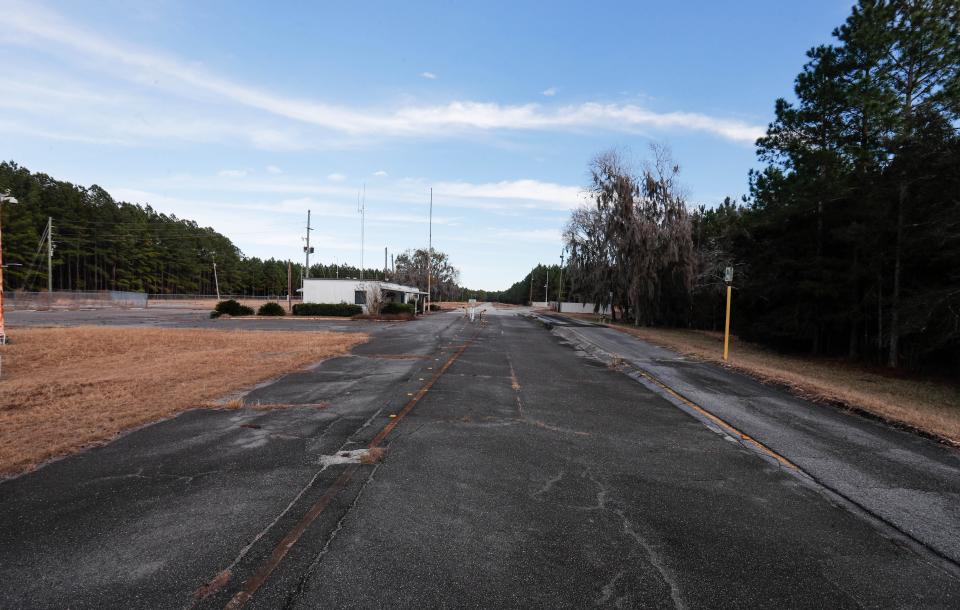
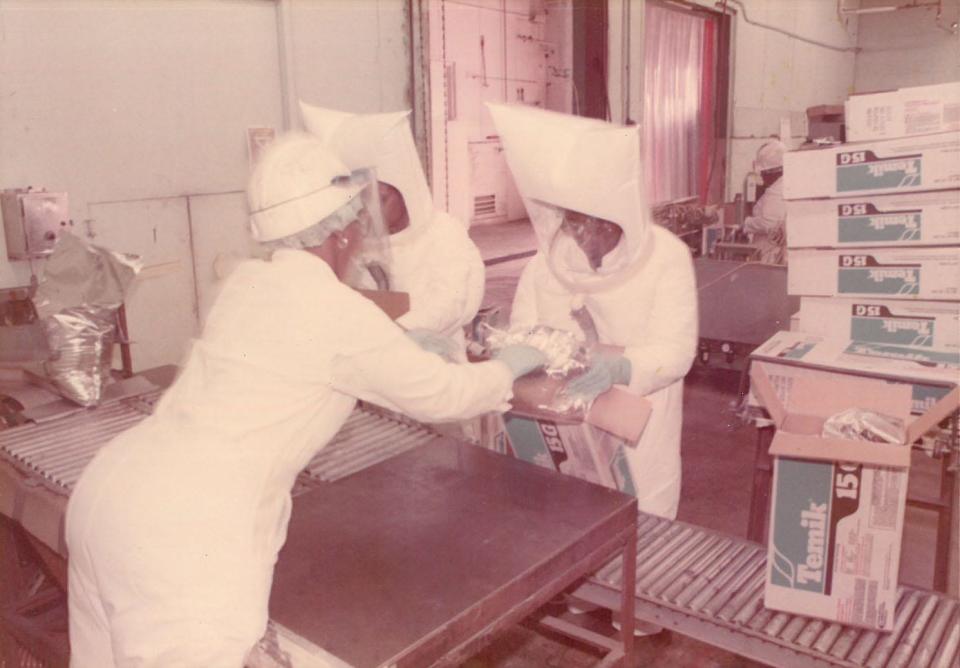
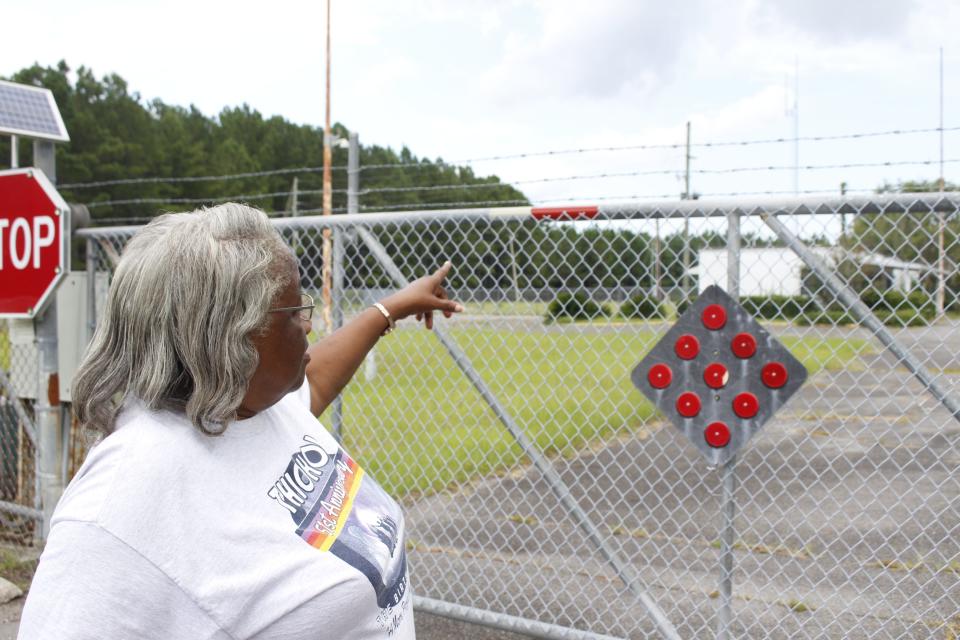
Emma Lue Gibbs started working at the plant 50 years ago and was there the day of the explosion. Now, 78-years-old, she volunteers at the Thiokol Memorial Project in Kingsland, helping the museum's leader, Jannie Everette.
Miss Emma Lue remembers working with others fondly, she points at a building right past the entrance to the left, which she called "the change house." Workers would ride the bus or drive to Thiokol and would park or be dropped off just past the gate.
"All of (them) would have to change clothes when you come out here. You had to put on the coveralls, then you'd have to put on the paper suit, then put a towel (around you) and tape it. (They'd) put the gas mask on and tape the gloves and tape around your boots.
"There was no sense in taking all of that off and then going back to work, so you stay in it for six hours and then we (would) go home."
The workwear was crucial not only to keep the workers safe from the chemicals, but men and women like Miss Emma Lue worked with tear gas, which they had a contract for along with the trip flares for Vietnam.
When we walked to the gate of the former Thiokol plant, it was the first time Miss Emma Lue had been at the site in 16 years. "Oh, I told myself when I left I was never gonna come back." The weight of the moment held on her as she looked out past the gate and she paused to process.
Talking with her, Miss Emma Lue is in high spirits most of the time, she's lively and funny. This was one of the few moments of pensive pause she had.
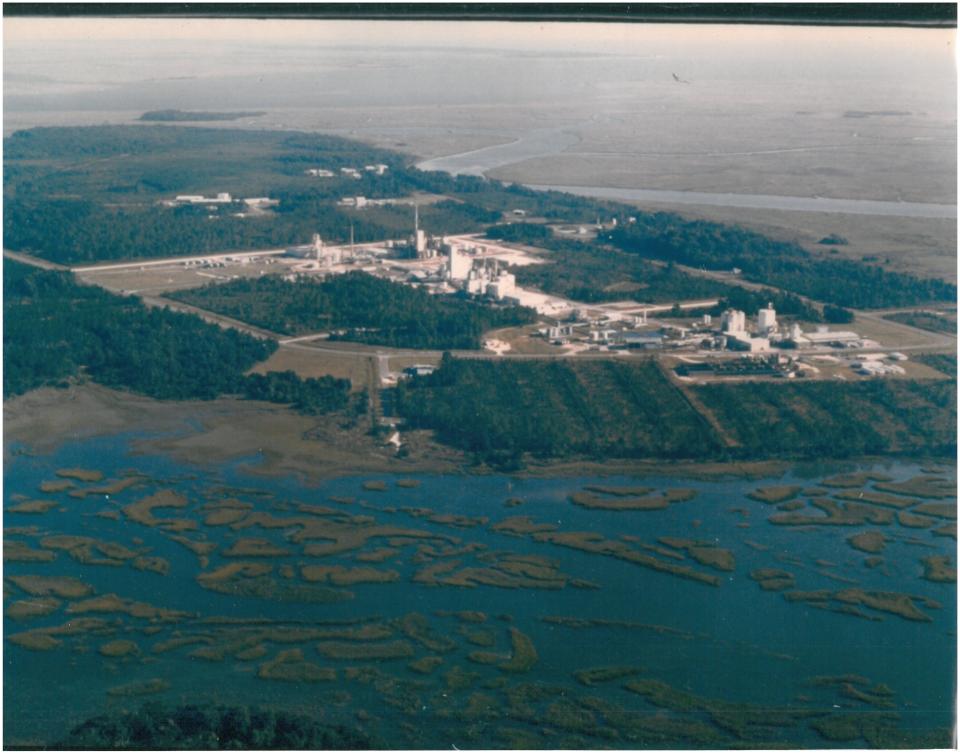
1960s America
Nov. 22, 1963
Shortly after noon, President John F. Kennedy was assassinated as he rode in a motorcade through Dealey Plaza in downtown Dallas, Texas.
July 2, 1964
This act, signed into law by President Lyndon Johnson, prohibited discrimination in public places, provided for the integration of schools and other public facilities, and made employment discrimination illegal. It was the most sweeping civil rights legislation since Reconstruction.
August 6, 1965
This act was signed into law by President Lyndon Johnson. It outlawed the discriminatory voting practices adopted in many southern states after the Civil War, including literacy tests as a prerequisite to voting.
Sept. 23, 1966
Congress further broadened coverage with amendments in 1966 by lowering the enterprise sales volume test to $500,000, effective February 1967. The minimum wage went to $1.00 an hour effective February 1967 for newly covered nonfarm workers, $1.15 in February 1968, $1.30 in February 1969, $1.45 in February 1970, and $1.60 in February 1971, the month of the Thiokol explosion.
April 4, 1968
At 6:05 p.m., Civil Rights leader Martin Luther King, Jr. was shot dead while standing on a balcony outside his second-floor room at the Lorraine Motel in Memphis, Tennessee. King had arrived in Tennessee to prepare for a march the following Monday on behalf of striking Memphis sanitation workers.
June 6, 1968
Shortly after midnight, Senator Robert Kennedy is shot at the Ambassador Hotel in Los Angeles after winning the California presidential primary.
Nov. 1, 1955 - April 30, 1975
The Vietnam War had been raging for 15 years on Feb. 3, 1971. At this point, 54,909 U.S. service members had been killed in the conflict.
Life in Woodbine
Woodbine is labeled with the house icon. Nearby major towns are labeled with stars, including: Savannah, Brunswick, Kingsland and Jacksonville. On the map to the left of Woodbine, you can see Blackshear and Waycross where workers traveled to the plant.
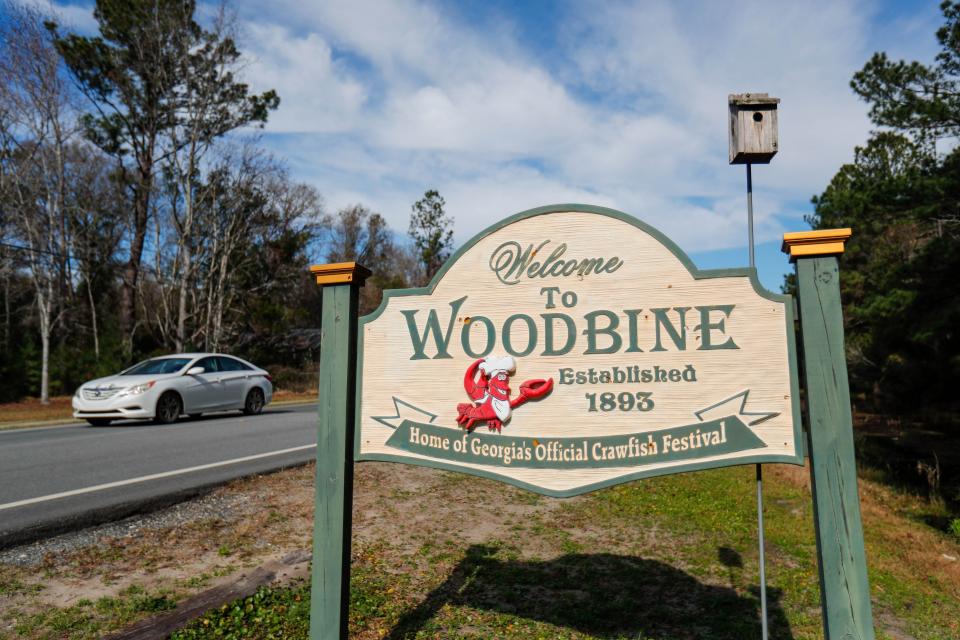
Woodbine, Georgia, is located on the southeastern tip of the state —a 15-mile drive south to Florida, 30-minute drive to Brunswick, 40-miles from Jacksonville and 15 miles east to Cumberland Island.
It is the county seat of Camden County, Georgia, which is the eighth oldest county in the state. Along with Burke, Chatham, Effingham, Glynn, Liberty, Richmond and Wilkes counties, Camden was named for Charles Pratt, the earl of Camden, who was the chief justice and lord chancellor of England.
According to the Bryan Lang Historical Archives in Woodbine, the first records for the site were dated in 1765, when William Trowin, John Brown, William Struthers, and John McGillvary petitioned for and received 1,400 acres on the south side of the Great Satilla River at a place referred to as Pile’s Bluff. The exact location is no longer certain, but historical records locate Piles Bluff near the current site of the City of Woodbine.
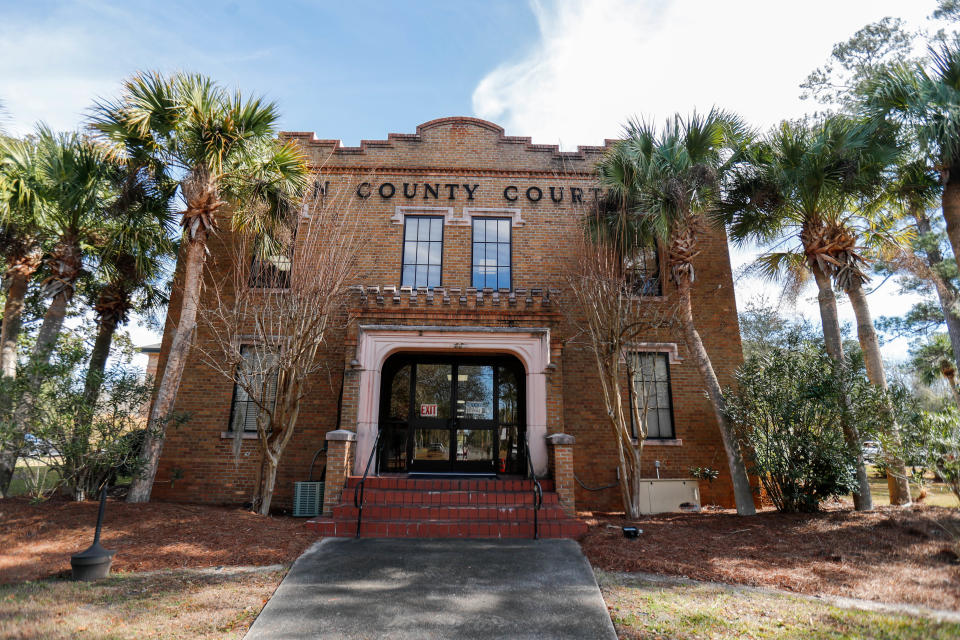
In 1808, the state of Georgia granted the land known as the Woodbine Plantation to Elijah Clarke, but it was sold to John Bailey in 1835. The plantation was the center of commerce for the area and stayed in the Bailey name until after the Civil War when it was purchased by John King Bedell. In 1893, when the railroad was laid through Camden County, Bedell sold the right-of-way through his plantation. His stipulation for the sale was that the first community that grew up around the railroad would be called Woodbine.
Initially, the county seat sat in St. Patrick, hailing from the south side of the Great Satilla River, but the seat was moved in 1792 to St. Marys and then to Jefferson (later Jeffersonton) in 1800. Jeffersonton was plantation town, similar to Woodbine, but the town declined after the Civil War and is now considered a dead town.
On August 17, 1908, the Town of Woodbine name was approved by the people of the settlement and a charter for incorporation was drawn up. The town grew as the Atlantic Coastal Highway was built through Woodbine in 1927, becoming the Camden County seat in 1928.
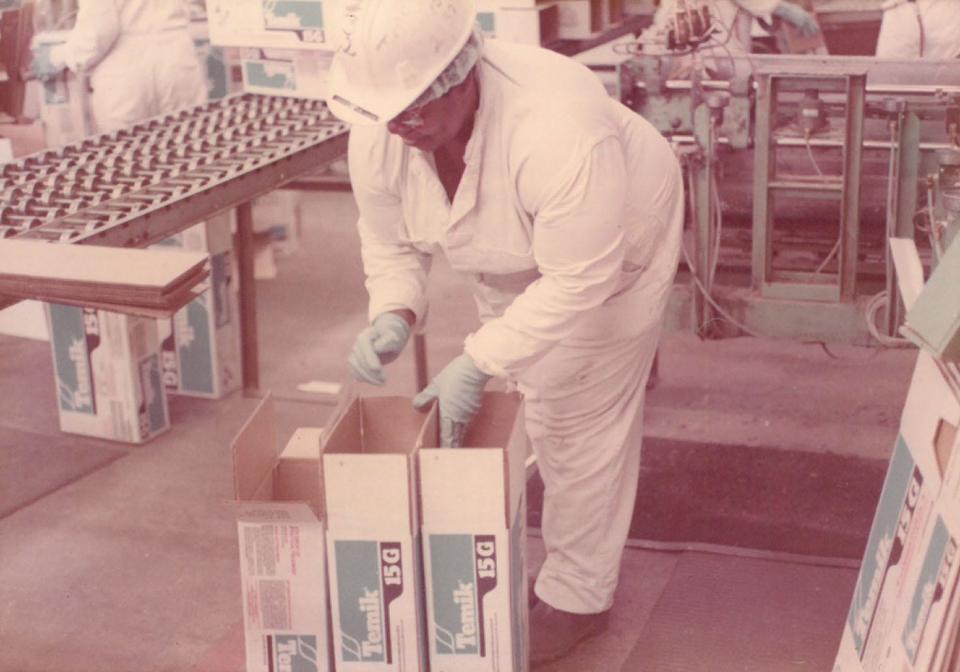
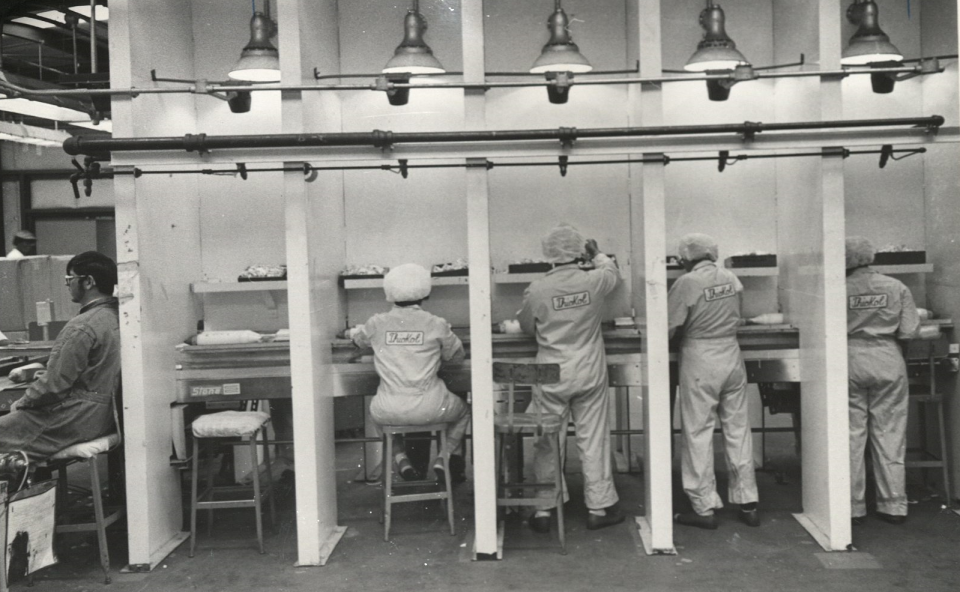
'Everybody's dead'
Feb. 3, 1971. 10:53 a.m., building M-132
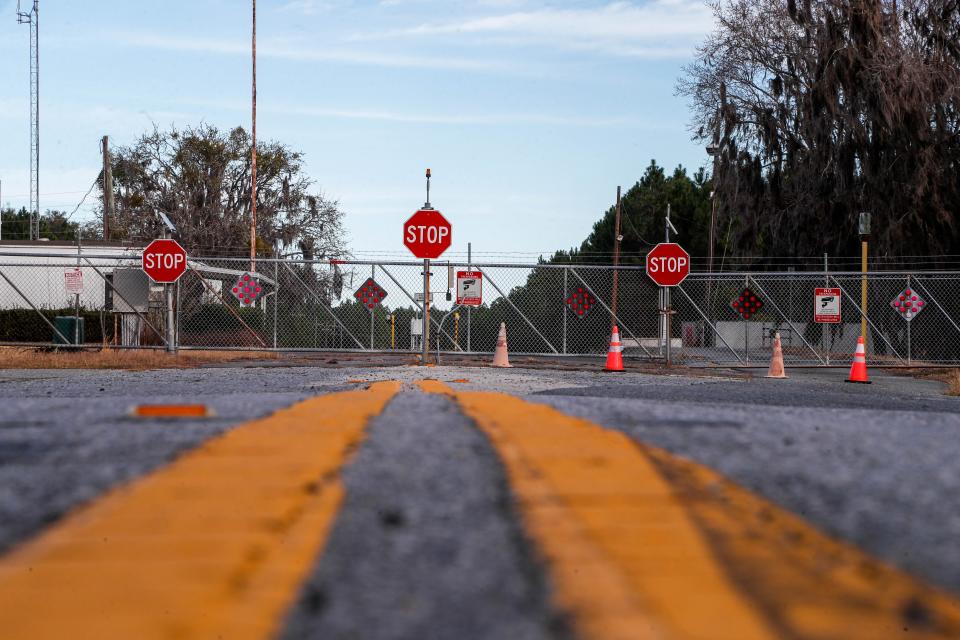
space
Tripwire, Episode 2: Woodbine, We Have a Problem
Tripwire, Episode 3: The Fire Had A Voice
Tripwire, Episode 4: The Whole World Changed For Me
Tripwire, Episode 5:The Normalization of Deviance
Tripwire, Episode 6: The Price of a Life
Tripwire, Episode 7: Remembering Woodbine
Tripwire Podcast
Executive Producers: Anne and Pat Longstreth, Nancy Guan and Zach Dennis
Music by Andrew Sovine, andrewsovine.com
Special thanks to Jannie Everette with the Thiokol Memorial Project for her assistance in making Tripwire.
Coming March 29
Join the Savannah Morning News and Savannah State University on Wednesday, March 29, at 6 p.m. for an event detailing the Tripwire podcast and its investigation into the 1971 Thiokol plant explosion that killed 29 people in Woodbine, Georgia.
The Tripwire team, Nancy Guan and Zach Dennis, along with Savannah documentarians Anne and Patrick Longstreth, and Thiokol Memorial Project executive director Jannie Everette will participate in a panel discussion about the making of the podcast and documentary, the story of Thiokol and Woodbine, and what the Thiokol Memorial Project is doing today to commemorate the sacrifice made by these women.
The panel will be held at the Asa H. Gordon Library on the Savannah State campus at 6 p.m. It is free and open to the public. If you plan to attend, RSVP at the Eventbrite page.
This article originally appeared on Savannah Morning News: Tripwire Podcast, Episode 1: We Sang While We Worked

